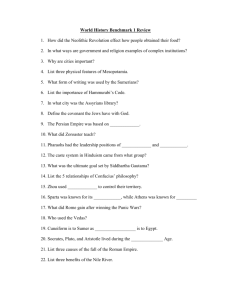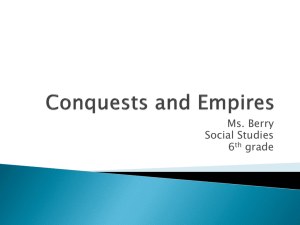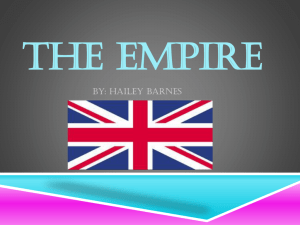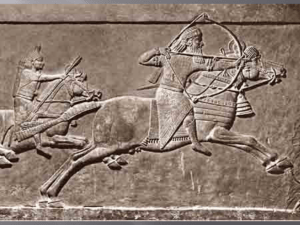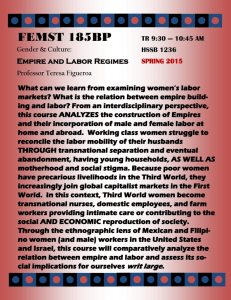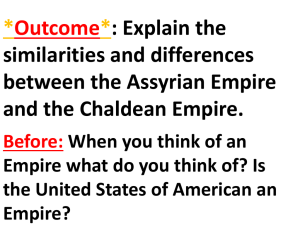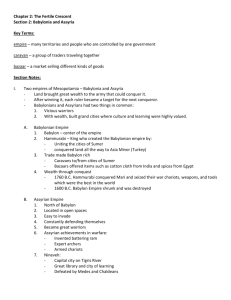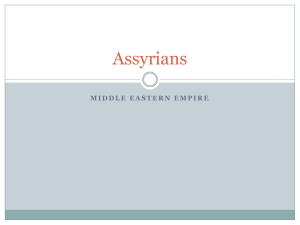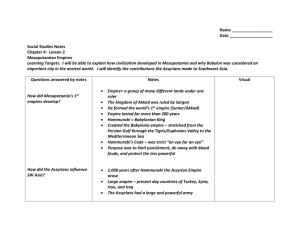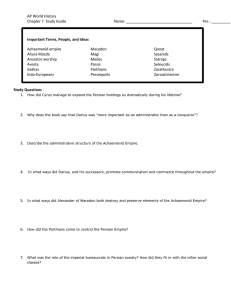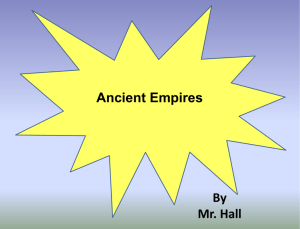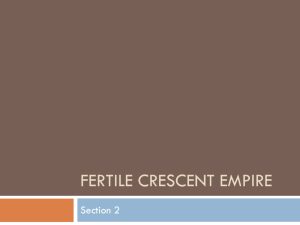Ch 2 sect 2 SG
advertisement
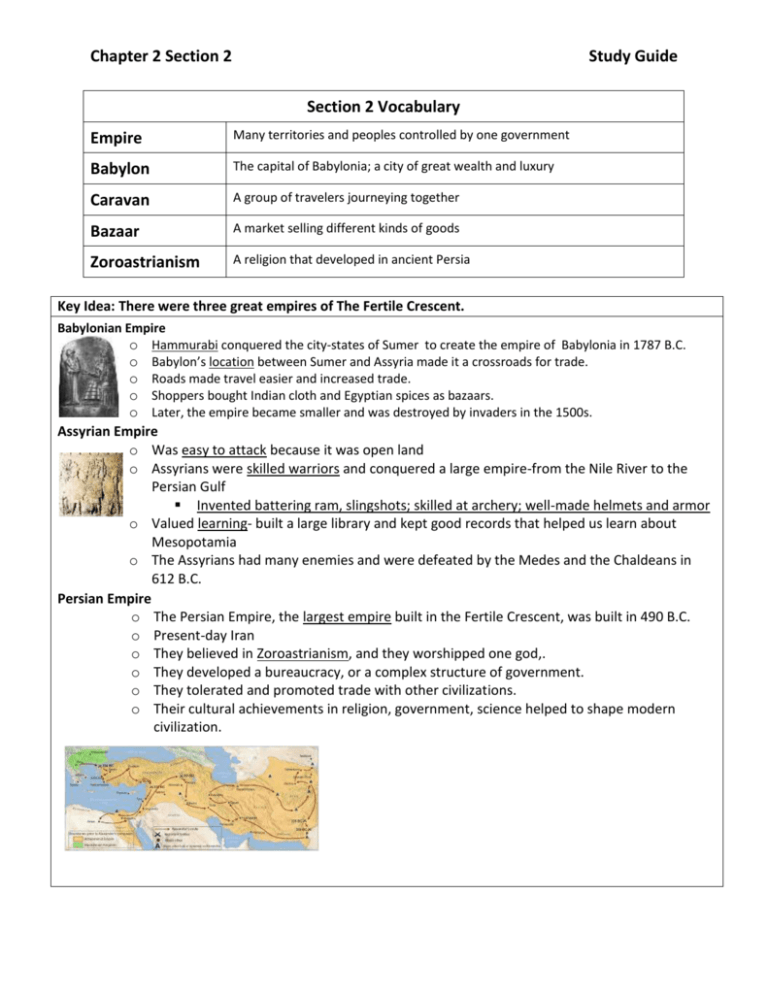
Chapter 2 Section 2 Study Guide Section 2 Vocabulary Empire Many territories and peoples controlled by one government Babylon The capital of Babylonia; a city of great wealth and luxury Caravan A group of travelers journeying together Bazaar A market selling different kinds of goods Zoroastrianism A religion that developed in ancient Persia Key Idea: There were three great empires of The Fertile Crescent. 1. Babylonian Empire o Hammurabi conquered the city-states of Sumer to create the empire of Babylonia in 1787 B.C. o Babylon’s location between Sumer and Assyria made it a crossroads for trade. o Roads made travel easier and increased trade. o Shoppers bought Indian cloth and Egyptian spices as bazaars. o Later, the empire became smaller and was destroyed by invaders in the 1500s. 1. Assyrian Empire o Was easy to attack because it was open land o Assyrians were skilled warriors and conquered a large empire-from the Nile River to the Persian Gulf Invented battering ram, slingshots; skilled at archery; well-made helmets and armor o Valued learning- built a large library and kept good records that helped us learn about Mesopotamia o The Assyrians had many enemies and were defeated by the Medes and the Chaldeans in 612 B.C. 1. Persian Empire o The Persian Empire, the largest empire built in the Fertile Crescent, was built in 490 B.C. o Present-day Iran o They believed in Zoroastrianism, and they worshipped one god,. o They developed a bureaucracy, or a complex structure of government. o They tolerated and promoted trade with other civilizations. o Their cultural achievements in religion, government, science helped to shape modern civilization.
